A recent National Audit Office (NAO) report has provided a detailed look at the UK’s £7.8 billion military support for Ukraine, raising concerns about the potential impact on the UK’s own defence readiness.
While the Ministry of Defence (MOD) has positioned itself as a key ally to Ukraine, with rapid equipment procurement and extensive training programmes, the report highlights potential risks to the UK’s military capabilities and financial oversight.
To respond to Ukraine’s urgent military needs, the MOD has accelerated its weapons procurement processes. This includes using non-competitive contracts and reducing testing requirements to deliver equipment quickly to the front lines.
According to the NAO report, by June 2023, the MOD had issued £1.27 billion in contracts that bypassed typical competitive tendering processes, allowing for rapid delivery but potentially sacrificing long-term safety and oversight.
In some instances, the MOD worked creatively, sourcing materials from unexpected places, such as using technical drawings from a tank museum to manufacture parts for Ukraine’s T-72 tank fleet.
However, reducing safety and effectiveness tests introduces risk. While Ukrainian forces have accepted this trade-off, the question remains whether the UK can maintain the same level of accountability without compromising the quality of its military aid.
Strain on UK military readiness
One of the key concerns highlighted in the NAO report is the impact on the UK’s own military readiness. As of mid-2023, the MOD had donated £171.5 million worth of equipment from UK stockpiles to Ukraine. However, the cost of replenishing this equipment is expected to reach £2.71 billion, as the MOD plans to replace outdated gear with more advanced technology over the next six years.
The MOD has significantly reduced donations from its own stockpiles, after determining that further transfers would pose “unacceptable risks” to the UK’s defence capabilities.
The report shows a sharp decline in equipment donations—from £130 million in 2022-23 to just £15.9 million in 2023-24—highlighting the difficult balance between supporting Ukraine and maintaining the UK’s own military readiness.
Training Ukrainian troops: a valuable but costly effort
The UK’s Operation Interflex, which trains Ukrainian soldiers, has been a cornerstone of the country’s military aid. By mid-2024, over 42,000 Ukrainian recruits had been trained in basic infantry, weapons handling, and urban combat tactics.
These efforts have been praised, with 89% of Ukrainian soldiers reporting that they feel better prepared for the battlefield after completing the training.
However, the NAO report notes the strain this training has placed on UK military facilities. More than a quarter of the British Army’s training grounds are now dedicated to Ukrainian forces, leading to a significant reduction in access for UK troops.
In 2023, British Army units had their bids for training sites rejected eight times more frequently than in 2019, due to the high demand created by the Ukrainian programme. Additionally, specialist programmes such as the Royal Marines’ training were relocated to the Netherlands to avoid compromising UK readiness.
Effectiveness of Training Under Scrutiny
Despite the positive feedback from Ukrainian troops, there are concerns that aspects of the training may not fully align with the realities of combat in Ukraine.
For example, the report highlights a lack of comprehensive drone training, a key element of modern warfare, due to UK civil aviation restrictions.
Furthermore, some reports from Ukrainian soldiers suggest that certain training modules did not cover the equipment they used in combat, raising questions about how well the training prepares them for the front lines. In response, the MOD has extended the duration of its infantry training course from three to five weeks and adjusted the curriculum to better reflect feedback from Ukrainian forces.
But questions remain about whether these changes are sufficient to address the evolving nature of warfare in Ukraine.
Financial oversight
The rapid pace of military support has also sparked concerns about financial oversight. While the MOD’s actions have been necessary to meet Ukraine’s needs, the use of non-competitive contracts, and exemptions from the usual scrutiny processes, raises the potential for inefficiency or waste.
Historically, the MOD has faced challenges in delivering complex procurement projects on time and within budget, and the accelerated timelines for Ukraine could lead to similar pitfalls. However, the NAO report did not find any direct evidence of waste or corruption related to the rapid procurement process.
The MOD has also stated that it is applying lessons learned from the Ukraine conflict to its routine procurement processes, in an effort to avoid past mistakes.
Balancing support
The UK’s military support for Ukraine is clearly vital, both in terms of the strategic importance of helping Ukraine defend itself and the moral obligation to assist in the face of Russian aggression.
However, the NAO report underscores the need for careful management of the UK’s own defence priorities. Balancing the urgent demands of international support with maintaining the UK’s military readiness is a complex challenge.
While the MOD has shown a willingness to adapt, introducing more structured management processes as the war has continued, it must ensure that long-term risks to the UK’s defence capabilities are not overlooked.


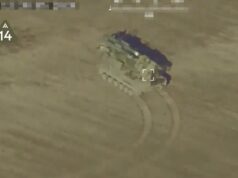
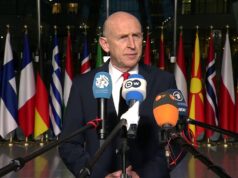
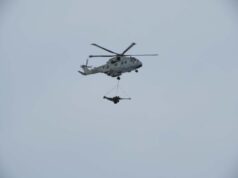


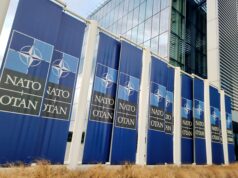
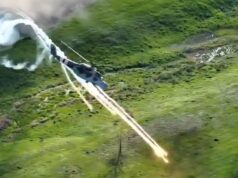

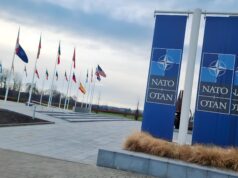


“For example, the report highlights a lack of comprehensive drone training, a key element of modern warfare, due to UK civil aviation restrictions.”
So how do UK forces get around that issue?
Do we just not train in that area – if so surely that exposes our troops to a real risk given the prolific use of drones.
This seems to highlight a gap in our training?
There must be vast areas in Canada or Aus where such live fire training could occur. Sims should be adequate for a lot of it.
I’d prefer a decent GBAD system in place before any of that though.
It’s not the live fire that’s the issue. It’s airspace deconfliction.
Drone operators require regular flight hours to maintain competency, and flying them put to Canada on the regular is an even higher admin and cost burden than airspace deconfliction.
Cape wrath is probably the best place to avoid conflict with other users. But there isn’t adequate accommodation there at the moment. Fairly easy to fix but it needs money, of which there ought to be plenty.
Putin will take far more notice of defense spending going up by 20% above inflation than he will of any supposedly clever weapons. He can easily delude himself that Russia can also have clever weapons. He can’t get more out of the Russian economy to match increased spending by the liberal democracies of Europe, America and Asia.
Poland and to some extent the Baltic states are showing the way, the UK needs to follow quickly before we get into world war 3.
The Army wouldn’t be too fussed about accommodation tbh, as it would want exercise conditions but that’s again returning to the issue.
If you need to go to Cape Wrath to fly drones you are not solving the problem.
Let’s look at 3 in detail: It’s one thing to get drone pilots the time they need flying to maintain competency (that’s like step one and we are struggling with step one, as is everyone else). But what you need is to tactically integrating Drones.
You’re doing a Recce, and the section or platoon IC decides he wants to use his drone operator to get eyes on the target, at which point the OM says “Sorry, but we’ve not been able to de-conflict the airspace so you can only notionally use the drone.”
You’re doing an assault on a position and you want to call in FPV drone support? How are you going to train that if you haven’t gotten airspace clearance?
That’s what we are talking about when the discussion is about UK regulations making training difficult. It’s not so simple as finding a remote spot and saying “We could do drone training there.” Drones have to be pushed down to really low level tactics.
As for defence spending, I doubt any additional defence spending will deter Putin. The EU already outspends him by a wide margin, the EU plus the US plus Canada, Norway and the UK? It’s not even in the same ball park. An additional defence percentage won’t make a difference to Russia’s risk anaylsis. They know they’ll loose, which is why their whole aim is to try and fracture NATO by cultivating allies like Orban, Trump, and Erdogan who might undermine Article 5.
On the strategic defence review consultation I repeatedly and consistently stated GBAD and anti drone systems.
It’s a craven folly to have neither in adequate numbers to do anything but defend maybe 4-5 key sites in the UK. Absolute madness…get it sorted please Labour, now we’ve got rid of the fools that were the corrupt Tory party.
£15.6 billion confirmed dodgy PPE contracts awarded by the Tories. Just think how much good £15.6 billion could do for the defence budget right now.
MOD needs to tell the CAA to get lost. Too many laws in the UK, the most regulated country in the world? It’s truly out of control.
It is getting ridiculous, and people wonder why we struggle for investment. A friend is trying to build 4 houses on a piece of land they own, requirement states numerous types of visits one of those is to confirm no bats are on the site. They had to pay almost 4 grand for someone from the council to turn up to do an assessment, took the ‘expert’ 12 minutes to confirm no bats on the location. The field has 1 small tree on it. Anyone with eyesight could confirm no bats reside on the site. So far im sure they have paid roughly 11k in various fees, most of which are a joke, to get anywhere near having planning permission to build.
Goodness knows how much money is involved in setting up premises in the UK on a big scale, its no surprise manufacturing has vanished from the economy.
To be honest the building regs etc has got very little to do with regulation and everything to do with income generation…in reality a quick impact assessment from a council employed environment scientist would as you say take no time and cost maybe £60..it’s the same with every permit and assessment, it’s income generation and it’s income shared between the public and private sector as councils now generally use the private sector to keep their costs down.
Blaming the CAA is a Red Herring’.
We don’t get around it. Serials involving any sort of larger drones require airspace to be booked in advance, which is something we abide by.
Keeping qualified drone operators up to date with flying hours is a real challenge.
Would having a dedicated drone TA help at all with the flying hours, if Drone use conflicts with other users and requires more admin?
Probably not. Now every time you want to do an exercise with UAV’s involved now you have to call up reservists to do the job? And you still have to book the airspace?
Simple answer yes it is harming our defence and effecting the Army more so. We gave a lot of old kit away but also gave in service kit that can not be quickly replaced. ie AS90
UKR support should come from Treasury reserve or overseas aid budget.
Op Interflex is vital.
Can the UKR training not be expanded out at BATUS?
When Watchkeeper was being procured an area of SPTA was reserved for flying, despite its lack of sense and avoid.
So why not the same with Drone training?
SPTA, SENTA, STANTA, the Aberporth ranges out into Cardigan Bay, Otterburn, Luce Bay and West Freugh, Spadeadaam, Manobeer AD ranges, why can parts of these vast training/ testing areas not have more permissive Drone training areas?
MoD has lots of land it could use if the will is there.
It should completely be foreign office budget lines, supporting Uk national security by supporting and stabilising the national security of friendly and neutral nations is completely the role of the foreign office…if the MOD does any work on this it should be paid by the foreign office…if the Army navy or airforce even gets a sniff of a request for help from the NHS the very first thing the MOD do is present the bill before presenting the help ( and those bills are at a call out rate, not mates rates, I’ve seen them).
Ok J, thanks.
I’m pleased the MoD bill the NHS. Makes a change.
Wonder what is different here? I don’t think the FCO budget stretches that far.
Personally I think that’s what the foreign aid budget should be spent on.
Absolutely. It’s aid.
Our governments sadly I feel are anti military, and putting military aid into the aid budget would have the left jumping up and down.
Just as these hostile regimes are rising around the world challenging western hegemony.
I’m not really sure why the NHS alway pays for military aid and the foreign office does not, seems very odd to me always has. But essentially if it’s in the UK the MOD bills so if the military do anything in the UK that is not directly defending against foreign powers, MACA ( military aid to civilians authority will be used and the requesting agency will have to pay, that includes the fire service, police and law and order services, ambulance services, wider NHS. Even in the case of a catastrophic even under the civil contingencies act you would still see the local resilience forum and gold command ( all the CAT one responders in that area responsible for managing a disaster.NHS, fire, police, county council) still need to complete a MACA request and pay the bill. Which is interesting because every other agency in the country is expected to provide mutual aid and not bill….
MACA is really clunky, has no local control and all in all is a bit of a joke…the process would be..an agency decided it needs military support ( say it needs rotors to move stuff into a disrupted area) it would put the request to the multi agency gold command ( covers a population of around 1 million people)..the gold command then has to send a request to the ministry of whichever ministry the requesting agency reports to..say the NHS needs rotors to move patients.the request goes to the department of health civil servants it then goes to the minister of health who then talks to the MOD minister and down to the civil servants who send it to the specific force, say RAF who then decide if they will provide any support and what it is ( without ever talking to the people on the ground)..it then goes back to the MOD who create the bill send it to the Department of health and it then gets released if the DOH agree..after the even the DOH then take the money from the specific agency ( so the hospital trust that needed the rotors to evacuate).
Thanks for that explanation, I had a rough idea how the system works, but not to this extent of detail.
How would you improve in it?
I’m a firm believer in decision making about operations should be made at operational level ( gold command level)..so I would like to see the military more engaged at the local resilience forum level. With decisions made by the local resilience forum and the services..there is no reason why the decision needs to be bounced to a Whitehall civil servant to a minister to another minister then another civil servant..
really why should a resilient forum not be able to ask the military in that area if they can support evacuations using four by fours…at present if you needed say 6 forces four by fours and drivers to support a critical evacuation you would have to wait for it to travel up to a minister..cross over departments travel down to the forces..come back up cross over the ministers and back down again…silly silly central control. The military are big boys they can say if they can help or not…the cross charging is fine and could still be done easily after the evens.
I have literally seen all hell put down on an on call leader of an acute trust because they simply asked a local military base if they could spare some drivers and four by fours, because the conditions had gone beyond what the local volunteer 4×4 drivers could manage and there were stranded patients that needed help…
Infact we will see services collapse and people die before we call the military..I have seen conditions get so bad people were dying at home stranded….as no one could get to them.
I see your point. That makes no sense whatsoever!
The cost of aid to Ukraine allegedly comes from the Treasury’s contingeny reserve, not the core defence budget.
That does beg some questions though. The Treasury contingency reserve for the year has allegedly been all spent on Ukraine and pre-election sweetners, so a questionmark over where future aid for Ukraine is to come from.in the near term.
Also, HMG skips around the issue of paying for the replacement of equipment and munitions shipped to Ukraine. This has predominantly been from the Army’s equipment budget. I doubt that the Treasury Contingency reserve is going to pay for that and there has been silence on any additional funding for defence to replace said munitions and equipment.
I hope that defence is not being tasked with squeezing it into the core budget or the war stocks will remain dangerously depleted.
One thing is for sure. Aid to Ukraine should not be coming from core Mod Budget if any of it is then that will be default weaken UK defences.
Therefore budget for supporting Ukraine should come from overseas aid budget entirely and the MOD should cross charging every missile, bullet, mortar and artillery round. Every vehicle, helicopter and the training given to Ukraine’s military.
It is a complete nonsense that hardware albeit in some cases equipment reaching the end of its service life has been given to Ukraine without any replacements being immediately ordered.
No. The UK government is compromising defence.